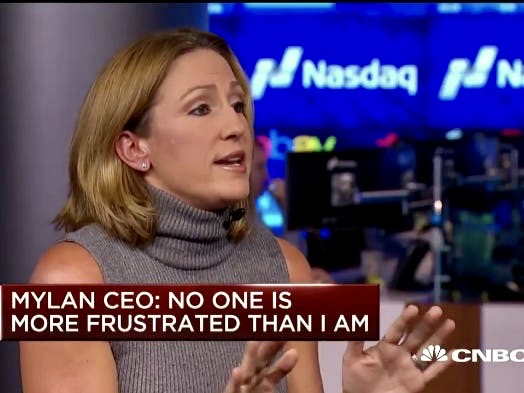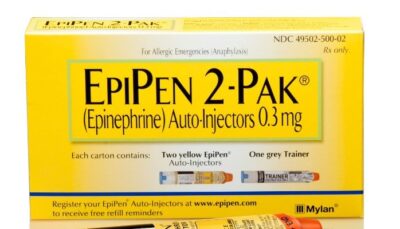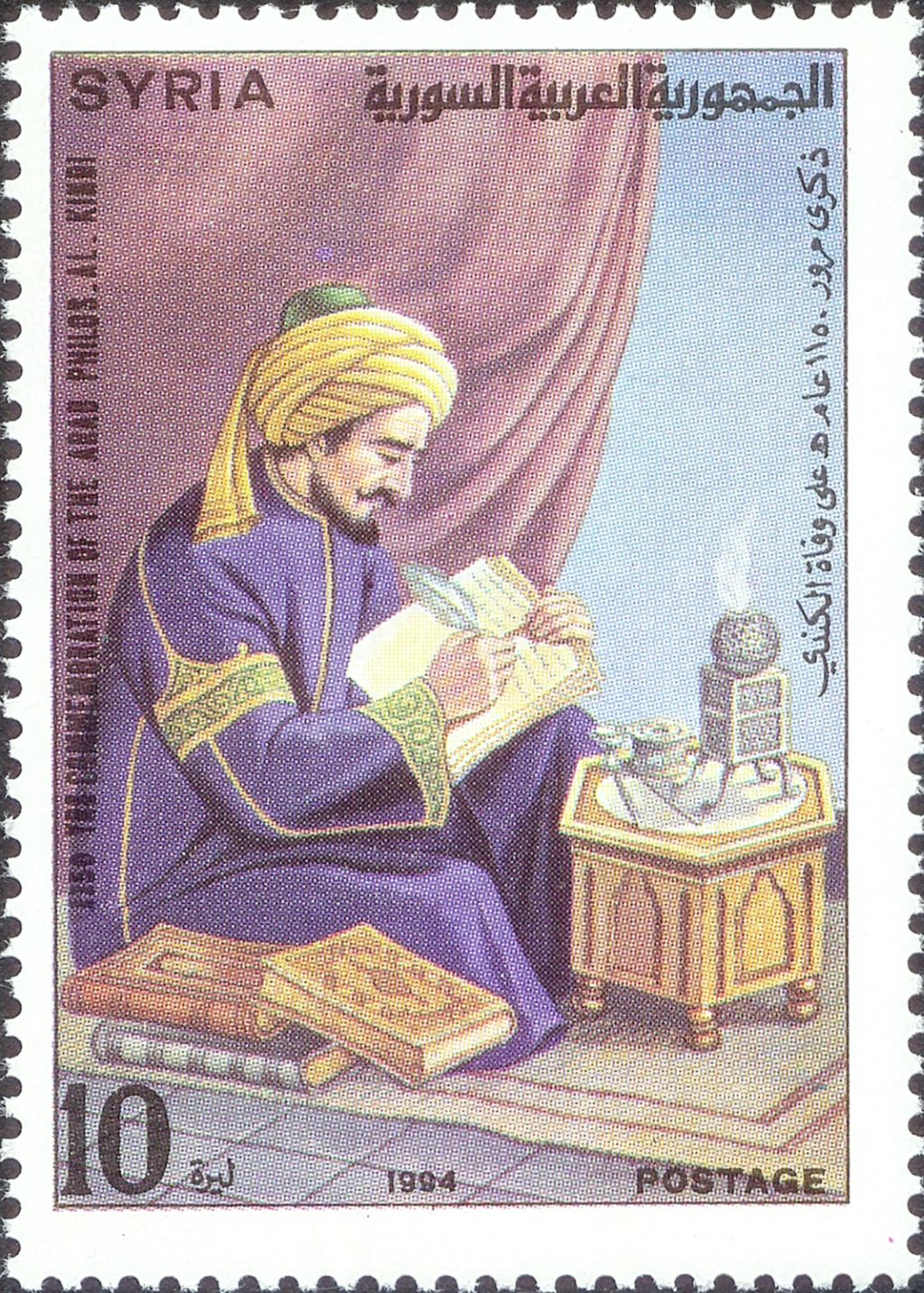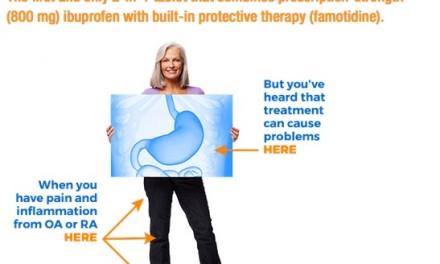“Ever since I’ve been in this position, and when I was governor, we made a point –we just didn’t get involved. It’s so convoluted, I don’t understand. To get into something you don’t understand and your daughter being in this type of industry – it was best I stayed away. My daughter is my daughter with unconditional love, and she’s the most amazing person that I know. She’s so compassionate and generous in how she’s always lived her life.”
—Senator Joe Manchin to Bloomberg News in September 2016. His daughter Heather Manchin Bresch, the CEO of Mylan, had raised the price of EpiPens by almost 500% since 2009.
EpiPens are life-saving devices for people who go into anaphylactic shock after exposure to peanuts, the venom in a bee sting, latex and other substances. The medicine in an EpiPen costs pennies; it is epinephrine, a synthesized version of adrenaline, the hormone made by our bodies. The EpiPen has a patented spring-loaded injector that makes it unnecessary to draw medicine into a syringe prior to injection. (Time is of the essence when a person is going into anaphylactic shock.) Purchasers are reminded that epinephrine loses potency over time and EpiPens have to be purchased annually. The EpiPen two-pack sold by Mylan cost a little over $100 in 2009 and a little under $500 in 2016 thanks to Joe Manchin’s daughter, Heather Bresch. Engineers figured the production cost of an EpiPen two-pack to be $8.02 at the time.
The EpiPen is the product of US taxpayer-funded research conducted in the 1970s for the Pentagon —which wanted an auto-injector device for soldiers facing exposure to nerve gas— by a company called Survival Technology. The rights to market a civilian version to prevent anaphylaxis were then sold and re-sold. Survival merged with Brunswick, which sold the rights to Dey, a subsidiary of Merck, which in 2007 sold the rights to Mylan, which made a production deal with King, a wholly owned subsidiary of Pfizer.
After some superficial improvements (a stronger spring, clearer instructions) that supposedly justified raising prices, Mylan began its big marketing push in 2009. With almost 90% of the market, their key goal was to get every school in the US to keep EpiPens on hand. Children face the highest risk of a fatal response because many have never been exposed to the substance they’re allergic to. Adults generally know what they’re allergic to and try to avoid exposure or carry the antidote.
As Governor of West Virginia, Joe Manchin had appointed his wife to the state Board of Education in 2007. By 2012 Gayle Conelly Manchin would be president of the National Association of State Boards of Education, an official-sounding-but-private outfit that lobbies state boards to adopt policies favored by Association members. In 2016 USA Today (a paper that doesn’t get enough credit for serious muckraking) reported that Mrs. Manchin had “spearheaded an unprecedented effort that encouraged states to require schools to purchase medical devices that fight life-threatening allergic reactions.
“The association’s move helped pave the way for Mylan Specialty, maker of EpiPens, to develop a near monopoly in school nurses’ offices. Eleven states drafted laws requiring epinephrine auto-injectors. Nearly every other state recommended schools stock them after what the White House called the ‘EpiPen Law’ in 2013 gave funding preference to those that did.”
It’s reassuring to know that none of this was ever discussed when the Manchins’ daughter Heather was in earshot. At Thanksgiving dinner it was all “Please pass the mashed potatoes, dad.”
Joe Manchin launched Heather’s brilliant career by introducing her to the CEO of Mylan. Although her claim to have a Master’s Degree in Business Administration was exposed as a lie, her fast rise to the top was unimpeded. Heather had something better than a degree, she had audacity. And so she quadrupled the price of a drug that several million US Americans must have on hand and buy every year. (Somebody ought to confirm that epinephrine degrades significantly in a year. It might be a pseudo-scientific marketing device like Dial Soap’s famous “Rinse and repeat.”)
Heather’s salary had risen from $2.5 million in 2007 to $18.9 million in 2015. Audacity enabled her, when the EpiPen price hike became a bit of a scandal in 2016, to blame it on “Our broken healthcare system.” She would have become the face of Pharmaceutical Industry Greed had it not been for Martin Shkreli, the publicity-welcoming “pharma bro” who raised the price of an anti-parasitic drug, Diapram, from $13.50 to $750. Shkreli won the auction for the only copy of a hip-hop album by Wu-Tang Clan. He was sentenced to seven years and may still be doing time for securities fraud, but presumably he got to enjoy “Once Upon a Time in Shaolin” before the two-CD rarity was seized by the feds.
Heather’s husband —Joe Manchin’s son-in-law— is a corporate lawyer named Jeffrey Bresch whose firm is currently representing the Pennsylvania Republican Party in its challenge to the validity of votes mailed in on Election Day in 2020 (but that’s another story). She retired at age 50 in 2020 after arranging Mylan’s merger with Upjohn. The first woman to head a Fortune 500 Pharmaceutical company, her accomplishments include Mylan’s acquisition of Abbott Laboratories and a transfer of corporate headquarters to the Netherlands, bringing the merged companies’ tax rate down from 24% to 21%. The moral of the story is: you don’t really need an MBA to be a successful corporate executive.
PS: In March 2021, President Biden appointed Gayle Conelly Manchin to co-chair the Appalachian Regional Commission, which disperses federal grants —$163,000/year sinecure.






